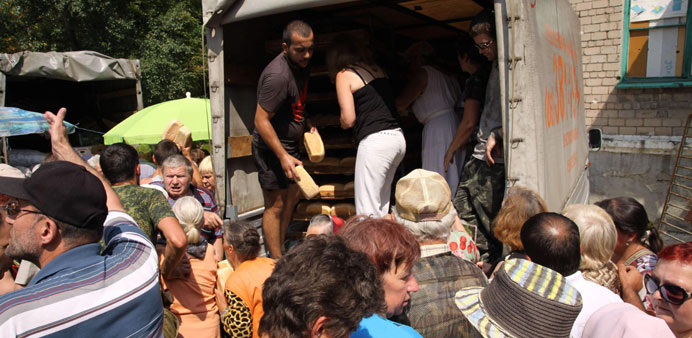Greece is facing a make-or-break struggle to stay in the 19-nation eurozone. But, for now, Gulf Co-operation Council countries are generally seen immune to a direct contagion from the crisis and a worst-case ‘Grexit’ fallout.
Most Gulf markets fell only modestly on Monday after an overwhelming 61.3% ‘No’ votes in Sunday’s Greek bailout referendum. The Qatar Stock Exchange edged down by just 41 points as investors appeared to have already factored in the poll outcome.
“If there is a persistent and steep fall in oil price, it will have implications on GCC economies. However this and other market movements will be contingent on developments from Greece negotiations and the ECB (European Central Bank) response,” says Doha Bank Group CEO Dr R Seetharaman.
Prominent Scottish banker John R Wright said he did not think Qatar would have much, if any, exposure directly to Greece, unless institutions and banks are holding Greek government debt in their portfolios.
In a wider sense, stakes are also crucial for the GCC as the euro is expected to weaken further.
All the GCC countries, except Kuwait, have their currencies pegged to the US dollar. As the European Union and Japan together account for an estimated 50% of the total GCC imports, a strong-dollar-weak-euro regime can work in the GCC’s favour in cheaper imported goods.
On the other hand, GCC sovereign wealth funds (SWFs) have invested heavily in Europe. They had provided emergency financing with a number of European banks after the crisis in 2008. Between 1995 and 2010, an estimated 30% of their cross-border investment was made in the EU. As per latest available data, total assets acquired by GCC private investors and SWFs in the EU is estimated at more than €400bn, making them one of the largest foreign investor groups in Europe.
However, some wealth managers point out Gulf investors, including central banks, SWFs, institutional investors and high net worth individuals, have had enough time to cover their positions as the crisis has been unfolding for quite sometime.
GCC investments in Europe are mainly keeping line with the futuristic strategy of economic diversification. Longer term, to be sure, a continued debt crisis in the eurozone and consistently weaker euro, will weigh on the valuation of GCC assets in Europe as well as capital returns.
For sure, in the Greek debt tragedy both sides have made countless mistakes and misjudgments over the last decade, says Jeffrey D Sachs, Professor of Sustainable Development at Columbia University. Easing Greece’s debt burden while keeping the country within the eurozone is the correct and achievable path out of the crisis in a win not only for those countries, but also for the world economy, he says.
No matter Greece can make it or not, GCC policymakers need to plan for any crisis arising out of Europe/eurozone to protect their investments and trade interests.

